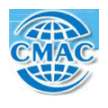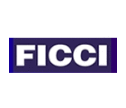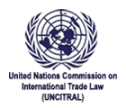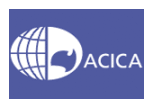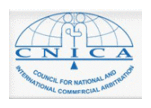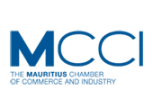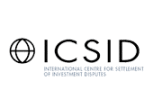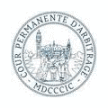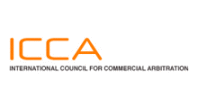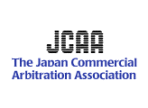Principles
We do not make deals with judges
 The key principle of our activity is that we do not get involved in corrupt schemes for the settlement of disputes, however ordinary or subtle such schemes might be. Our objective has always consisted – and still does – in the provision of high-quality legal services in the sphere of dispute settlement to our clients. If this is what the client needs we are ready to make every effort and use all our energy to fulfill the set tasks. Alternatively, if the client seeks to resolve his/her problems by any means we will be at cross purposes.
The key principle of our activity is that we do not get involved in corrupt schemes for the settlement of disputes, however ordinary or subtle such schemes might be. Our objective has always consisted – and still does – in the provision of high-quality legal services in the sphere of dispute settlement to our clients. If this is what the client needs we are ready to make every effort and use all our energy to fulfill the set tasks. Alternatively, if the client seeks to resolve his/her problems by any means we will be at cross purposes.We do not distort reality
 We do not represent the interests of clients who are seeking “any means to avoid payments”. Here we refer to a minority of clients who are absolutely sure that they must fulfill their obligations in respect of their adverse parties (and the size of such obligations is not disputed) but in spite of this, explain the refusal to fulfill such obligations by a simple unwillingness to disburse their funds. Thus, very often for such purposes an unscrupulous party resorts to challenging the transaction using the “corporate approval” institution. In such cases the engaged lawyers are told that the sole executive body undoubtedly agreed upon the transaction with the Board of Directors (or with the founders), however, since this was done verbally the client asks the consultants to state in court that the approval was not obtained – i.e. to distort reality, which amounts to committing perjury. Unfortunately, we refuse to deal with such clients.
We do not represent the interests of clients who are seeking “any means to avoid payments”. Here we refer to a minority of clients who are absolutely sure that they must fulfill their obligations in respect of their adverse parties (and the size of such obligations is not disputed) but in spite of this, explain the refusal to fulfill such obligations by a simple unwillingness to disburse their funds. Thus, very often for such purposes an unscrupulous party resorts to challenging the transaction using the “corporate approval” institution. In such cases the engaged lawyers are told that the sole executive body undoubtedly agreed upon the transaction with the Board of Directors (or with the founders), however, since this was done verbally the client asks the consultants to state in court that the approval was not obtained – i.e. to distort reality, which amounts to committing perjury. Unfortunately, we refuse to deal with such clients. However such cases should be distinguished from situations where our task is to restore reality rather than distort it. Thus, in one of our recently completed arbitration cases we were representing the defendant (a survey company) who stated when applying for legal assistance that their employees had made a mistake in the course of contract performance, and this mistake had become a reason for the plaintiff’s claim for damages (the plaintiff being an offshore oil finding and producing company). The client was absolutely sure of the contract breach on its part; nevertheless, they asked our specialists to assess the nature of the breach and its causation with damages. Analysis of the evidence obtained during the preparation for the hearings stage showed, however, that the client’s assurance of having committed a contract violation was based on the unavailability of the appropriate reliable information on the performance of the contract by the plaintiff itself. When such information finally was discovered it led to the conclusion that the client in effect had not breached the contract at all and was therefore under no duty to compensate for damages. This conclusion was upheld by the arbitral tribunal later on.
We do not deal with rebates of “black-scheme” VAT
 We also refuse to deal with those clients who use the so-called “black” schemes for the tax optimization and for the obtaining of tax rebates. Here we refer to clients who intend to obtain preferential taxation terms (e.g. in the form of VAT rebates or a reduction of the profit tax base) using dummy companies, false documents, non-existent legal entities or fly-by-night companies. In other words, we refer to situations, whereby a potential client acts in a knowingly unfair manner and willfully uses the aforementioned illegal profit-making schemes. Sometimes we have to refuse to deal with a client when we are already in the course of initiated proceedings if, based on the provided documents and information, it becomes clear that at the moment of concluding the contract for the provision of legal services the client was misleading us as to the nature of the transactions made and the degree of his/her awareness and participation in the development of the “scheme”.
We also refuse to deal with those clients who use the so-called “black” schemes for the tax optimization and for the obtaining of tax rebates. Here we refer to clients who intend to obtain preferential taxation terms (e.g. in the form of VAT rebates or a reduction of the profit tax base) using dummy companies, false documents, non-existent legal entities or fly-by-night companies. In other words, we refer to situations, whereby a potential client acts in a knowingly unfair manner and willfully uses the aforementioned illegal profit-making schemes. Sometimes we have to refuse to deal with a client when we are already in the course of initiated proceedings if, based on the provided documents and information, it becomes clear that at the moment of concluding the contract for the provision of legal services the client was misleading us as to the nature of the transactions made and the degree of his/her awareness and participation in the development of the “scheme”.We are results-oriented
 We are aware of the fact that the peculiarity of services in the sphere of the dispute settlement primarily consists, in the importance of the result, namely the passing of a/an judgment/award in favour of the client. No matter how good the lawyers’ pleadings might seem or how impressive their oral statements in the course of the hearing may be, all these things are of no value for the client if there is no positive final result in the form of a judgment/award in his favour. This is why the achievement of the result needed by the client is our top priority. Here, the key to success is, in our opinion, the conscientious and active work at all stages of the preparation for the proceedings.
We are aware of the fact that the peculiarity of services in the sphere of the dispute settlement primarily consists, in the importance of the result, namely the passing of a/an judgment/award in favour of the client. No matter how good the lawyers’ pleadings might seem or how impressive their oral statements in the course of the hearing may be, all these things are of no value for the client if there is no positive final result in the form of a judgment/award in his favour. This is why the achievement of the result needed by the client is our top priority. Here, the key to success is, in our opinion, the conscientious and active work at all stages of the preparation for the proceedings. Each of these stages from (a) collection and sorting of initial information on the dispute as received from the client; (b) analysis of the existing or the most probable legal views of the adverse parties; (c) detailed development of own legal views; (d) analysis of opinions expressed by potential arbitrators (in their writings and available passed awards), which may be somehow related to the issues at stake; (e) selection and appointment of an arbitrator; (f) check of arbitrators (nominees) appointed by the adverse party in terms of their independence and impartiality; (g) preparation of all kinds of written pleadings; etc. to (e) preparation of oral arguments for the hearings – should, in our opinion, be worked through at the highest professional level.
We try to build up a professional model of relations with clients
 According to common opinion lawyers are one of the least compassionate categories of people; without engaging in the controversy as to the truth of this statement we would like to note that we try to establish good working yet human relations with our clients, based on understanding and mutual respect. We are convinced that very often what a client needs is not only competent assistance, but also a sympathetic attitude as to their needs and a sincere participation in the problem. This is the approach, which, as we can state based on our experience, proves to be the most efficient means for resolving mutual problems.
According to common opinion lawyers are one of the least compassionate categories of people; without engaging in the controversy as to the truth of this statement we would like to note that we try to establish good working yet human relations with our clients, based on understanding and mutual respect. We are convinced that very often what a client needs is not only competent assistance, but also a sympathetic attitude as to their needs and a sincere participation in the problem. This is the approach, which, as we can state based on our experience, proves to be the most efficient means for resolving mutual problems.






1.jpg)





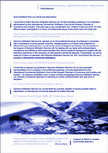
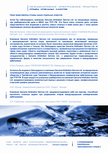

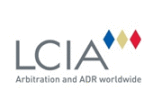




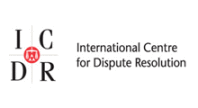
.jpg)
1.jpg)

.jpg)

1.png)

1.jpg)




